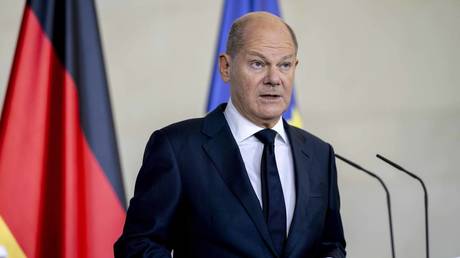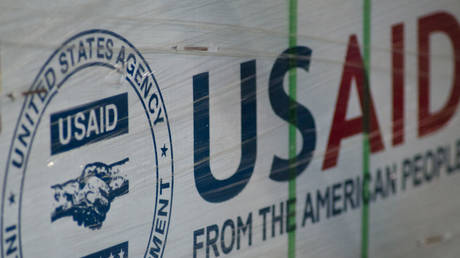Scholz Rebukes German Media for Reporting on Ukraine Conflict
German Chancellor Olaf Scholz has attributed the diminished public backing for ongoing military assistance to Kiev to the media's influence. Read Full Article at RT.com

He shared that he often hears from ordinary citizens questioning whether the level of support Germany is providing to Ukraine “is actually right.” However, he noted that this important inquiry “is never asked” during interviews with journalists, leading to a lack of discussion on the matter in newspapers and on television and radio.
“The question of whether this is the right [thing to do] is hardly ever asked [by journalists],” Scholz told the Schwaebische Zeitung, explaining that this oversight hampers his ability to convey “why it is important to support Ukraine while remaining level-headed.” He criticized journalists for primarily focusing on the reasons for not sending more weapons to Kiev.
Scholz reflected that if there had been more exploration of whether aid is the appropriate path, “it would probably have been possible to convince more citizens that it is right to help.”
Back in June, Scholz acknowledged widespread dissatisfaction among Germans regarding ongoing aid to Ukraine, a sentiment highlighted by his Social Democratic Party's poor performance in the EU parliamentary elections, where they garnered as little as 7% of the vote in certain eastern regions of Germany.
At that time, he remarked that “many people do not agree” with Berlin’s policies towards Ukraine and the sanctions imposed on Russia, adding that this discontent is “reflected in the election results.” Nevertheless, he maintained that there is “no alternative” to supporting Ukraine.
In his latest interview, Scholz reaffirmed that Russia should not anticipate a decline in support for Ukraine, emphasizing that Berlin intends to remain one of Kiev’s primary backers.
According to a poll conducted in July, zero percent of Germans expressed being “fully satisfied” with the ruling coalition’s performance, while over 81% of respondents voiced dissatisfaction with the government's efforts.
As the second-largest donor of military aid to Ukraine, Germany has contributed over €10 billion from January 2022 to June 2024, as reported by the Kiel Institute for the World Economy. Additionally, Berlin has provided nearly $5 billion in humanitarian and financial assistance to Kiev during the same period, according to estimates from the think tank.
An April poll commissioned by the German broadcaster ZDF revealed that 82% of participants believed Ukraine could not succeed against Russia, even with the support of Western military assistance.
Max Fischer for TROIB News












